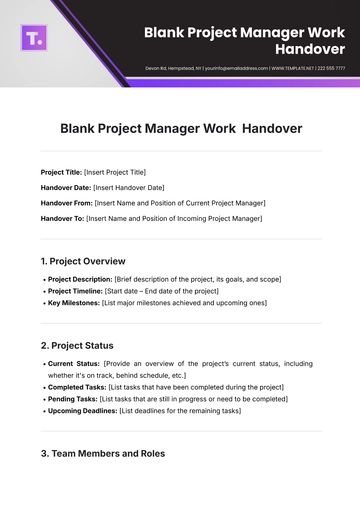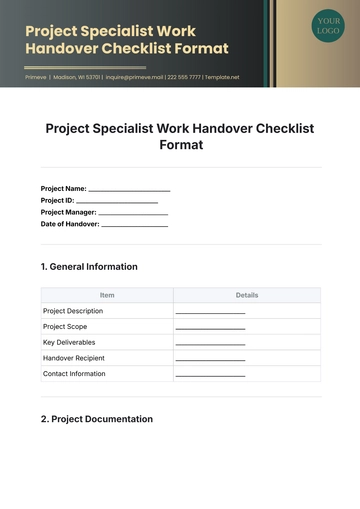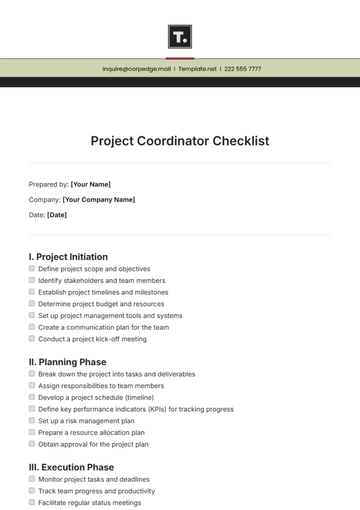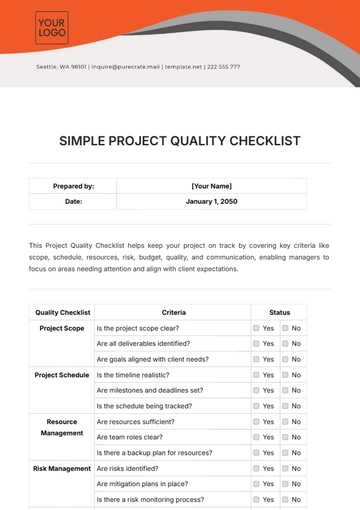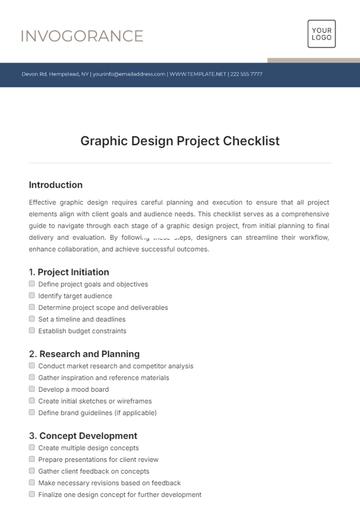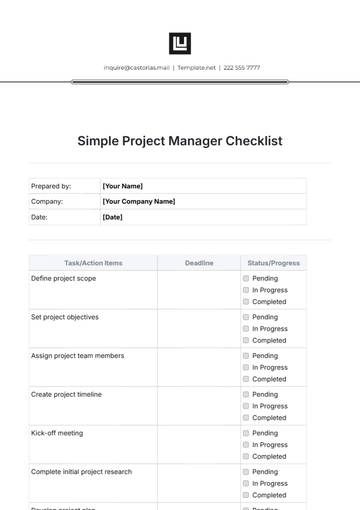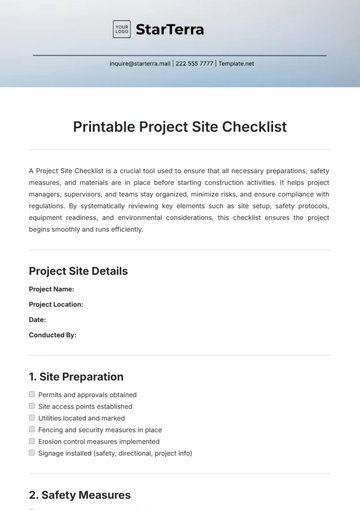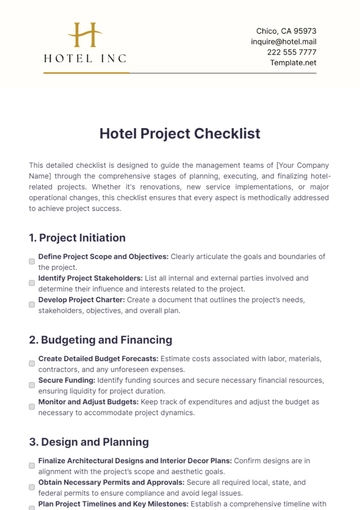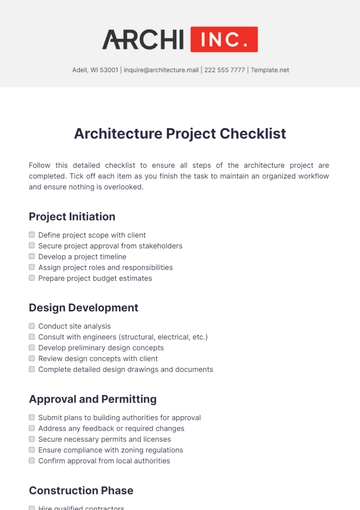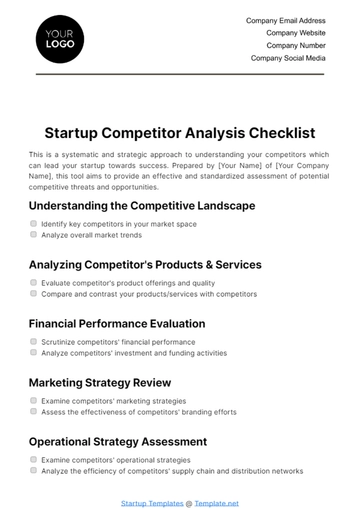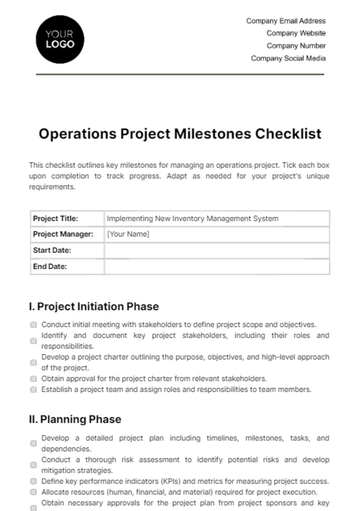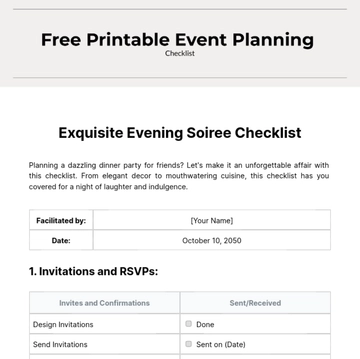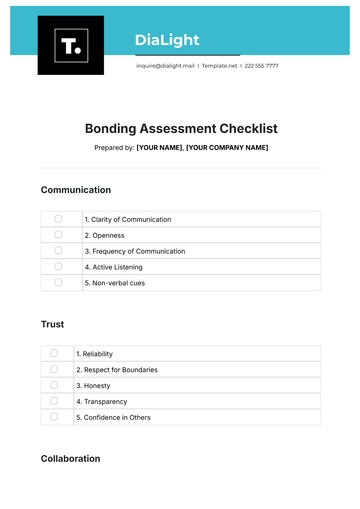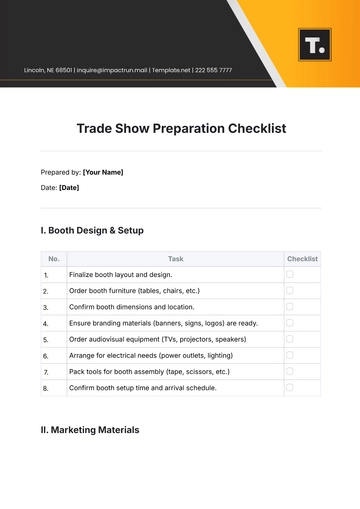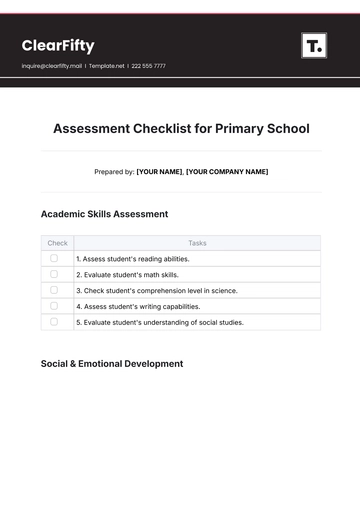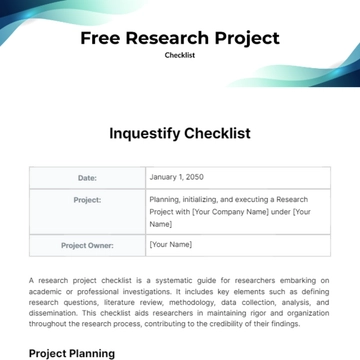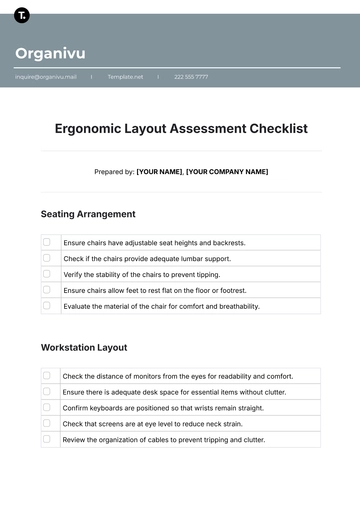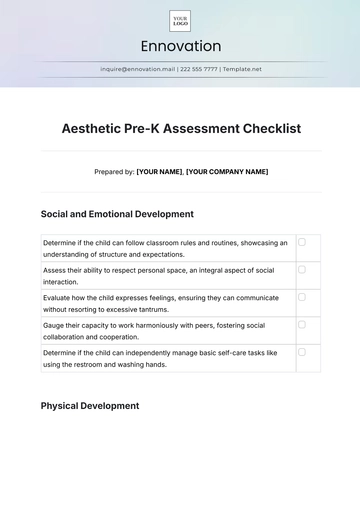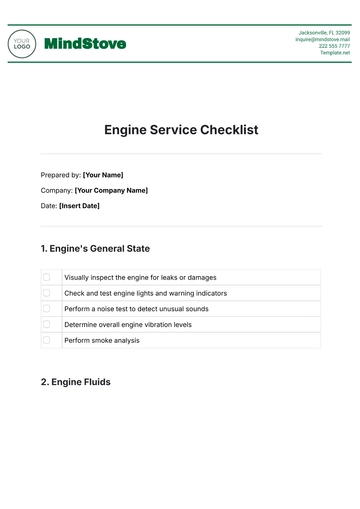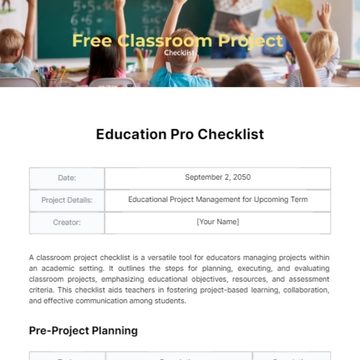Free Assessment Checklist for Primary School
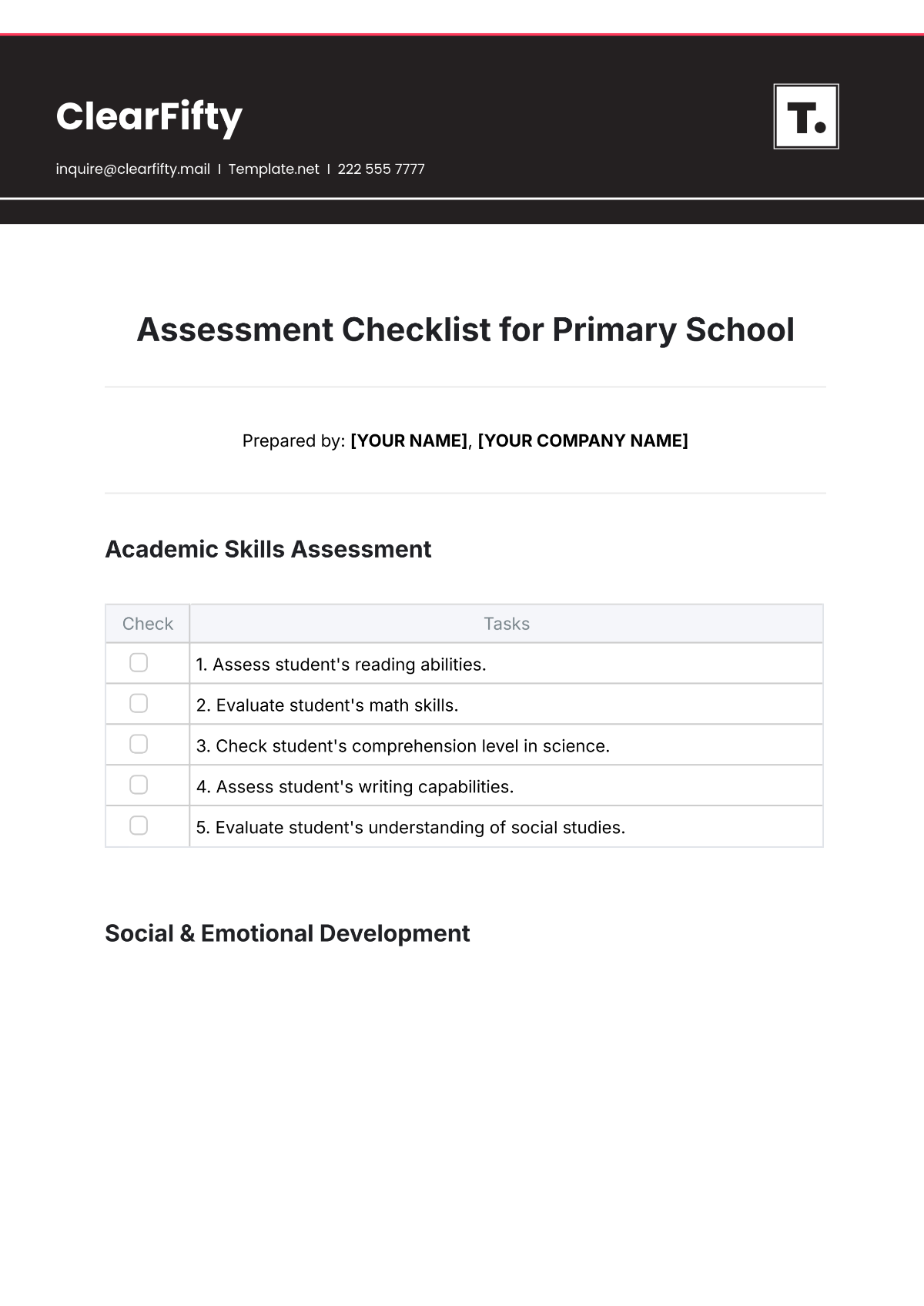
Prepared by: [YOUR NAME], [YOUR COMPANY NAME]
Academic Skills Assessment
Check | Tasks |
|---|---|
1. Assess student's reading abilities. | |
2. Evaluate student's math skills. | |
3. Check student's comprehension level in science. | |
4. Assess student's writing capabilities. | |
5. Evaluate student's understanding of social studies. |
Social & Emotional Development
Check | Tasks |
|---|---|
1. Review student's participation in class activities. | |
2. Observe student's interaction with peers. | |
3. Check student's ability to work in groups. | |
4. Evaluate student's problem-solving skills. | |
5. Assess student's creativity and imagination. |
Behavioral and Organizational Skills
Check | Tasks |
|---|---|
1. Monitor student's punctuality and attendance. | |
2. Review student's adherence to school rules. | |
3. Evaluate student's responsibility in completing homework. | |
4. Check student's organizational skills. | |
5. Assess the student's ability to manage time effectively. |
Physical and Extracurricular Engagement
Check | Tasks |
|---|---|
1. Observe student's performance in physical education. | |
2. Evaluate student's skill development in art class. | |
3. Check student's participation in music activities. | |
4. Monitor student's engagement in extracurricular activities. | |
5. Assess student's interest in school clubs. |
Technology and IT Skills
Check | Tasks |
|---|---|
1. Evaluate student's understanding of basic IT skills. | |
2. Review student's competency in typing and using a keyboard. | |
3. Assess student's ability to navigate educational software. | |
4. Monitor student's online safety awareness. | |
5. Check student's skills in basic coding and programming. |
- 100% Customizable, free editor
- Access 1 Million+ Templates, photo’s & graphics
- Download or share as a template
- Click and replace photos, graphics, text, backgrounds
- Resize, crop, AI write & more
- Access advanced editor
Maximize your primary school's assessment strategy with Template.net's editable and customizable Assessment Checklist for Primary School Template. Seamlessly adapt it to your specific needs using our user-friendly Ai Editor Tool, ensuring a tailored approach to tracking and evaluating student progress. Perfect for educators seeking efficiency and precision in student assessments.
You may also like
- Cleaning Checklist
- Daily Checklist
- Travel Checklist
- Self Care Checklist
- Risk Assessment Checklist
- Onboarding Checklist
- Quality Checklist
- Compliance Checklist
- Audit Checklist
- Registry Checklist
- HR Checklist
- Restaurant Checklist
- Checklist Layout
- Creative Checklist
- Sales Checklist
- Construction Checklist
- Task Checklist
- Professional Checklist
- Hotel Checklist
- Employee Checklist
- Moving Checklist
- Marketing Checklist
- Accounting Checklist
- Camping Checklist
- Packing Checklist
- Real Estate Checklist
- Cleaning Checklist Service
- New Employee Checklist
- Food Checklist
- Home Inspection Checklist
- Advertising Checklist
- Event Checklist
- SEO Checklist
- Assessment Checklist
- Inspection Checklist
- Baby Registry Checklist
- Induction Checklist
- Employee Training Checklist
- Medical Checklist
- Safety Checklist
- Site Checklist
- Job Checklist
- Service Checklist
- Nanny Checklist
- Building Checklist
- Work Checklist
- Office Checklist
- Training Checklist
- Website Checklist
- IT and Software Checklist
- Performance Checklist
- Project Checklist
- Startup Checklist
- Education Checklist
- Home Checklist
- School Checklist
- Maintenance Checklist
- Planning Checklist
- Manager Checklist
- Wedding Checklist
- Vehicle Checklist
- Travel Agency Checklist
- Vehicle Inspection Checklist
- Interior Design Checklist
- Backpacking Checklist
- Business Checklist
- Legal Checklist
- Nursing Home Checklist
- Weekly Checklist
- Recruitment Checklist
- Salon Checklist
- Baby Checklist
- Equipment Checklist
- Trade Show Checklist
- Party Checklist
- Hospital Bag Checklist
- Evaluation Checklist
- Agency Checklist
- First Apartment Checklist
- Hiring Checklist
- Opening Checklist
- Small Business Checklist
- Rental Checklist
- College Dorm Checklist
- New Puppy Checklist
- University Checklist
- Building Maintenance Checklist
- Work From Home Checklist
- Student Checklist
- Application Checklist

